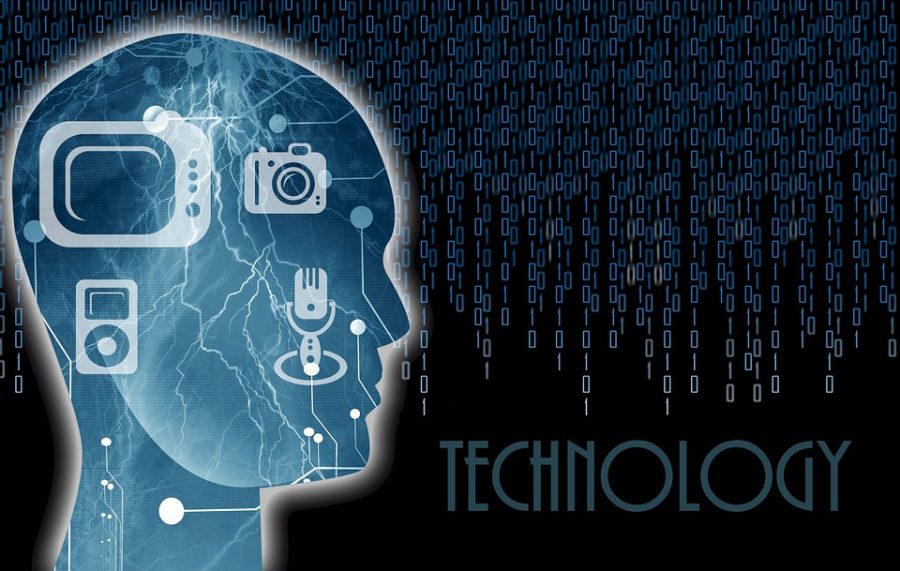Technology: The way forward – or is it?
About a week ago new lights were installed in my house, the fancy kind without real lightbulbs. In order for that to happen the old lightbulbs that we’d used were taken down, which, inevitably, reminded me of the old joke about lightbulbs, and I wondered how many people it actually would take to screw in a lightbulb.
A few days later, I noticed my shoelaces kept getting untied no matter how tightly I tried to tie them. It brought me back to the old joke, which I thought about while continually falling over that day. As it turned out it wasn’t just me who sometimes struggled with simple yet seemingly obvious things: it was actually my generation, and the generations of the future.
Think about it. When was the last time you thought about fixing a broken door or what groceries to buy, or even did simple chores like the laundry or dishes? Our current generation of Millennials and future generations have been trained early on regarding technical skills, such as how to work a cell phone or laptop. After all, they’ve only made our lives easier in school. But what about the simple, everyday tasks that our parents learned as kids, the tasks that we never had to do? As it turns out, most young adults never learn these skills, meaning that when they move out they have no idea what they are in for.
According to education specialist James Stanfield, 2 out of 3 children feel underprepared for adult life after they graduate high school. As 90% of kids graduate nowadays, that’s a lot of kids who don’t know how to take on life’s many responsibilities. Most of the time they never learn things like doing their taxes and laundry, or saving and spending their money wisely.
This is due to the influx of tech classes and the importance on getting good grades in today’s society. Sideline life skills classes, which are no longer required in most countries to graduate, have therefore been neglected. In fact, according to the Daily Mail, 23% percent of people between the ages of 25 and 34 are unable to operate a washing machine. While that may not be everyone right now, this could be the case in approximately 10 years. So why do people lack these “easy-to-learn” skills and yet are so highly educated?
Dr. Sandi Mann, a senior lecturer in psychology at the University of Lancashire, said to Mirror, “Millennials are being brought up to be tech-savvy and their skill is in electronic manipulation – whilst their parents might be better attaching light bulbs, it is the older generation who often turn to the younger ones for help when their computer or phone crashes. Skills at using phones and computers are the ones valued these days and the practical hands-on skills of yesteryear are now seen as functions that can be easily outsourced.’”
This also transfers into the topic of handling money, which is an all-important staple of adulthood that no child seems to learn. According to the American Institute of Certified Public Accounts, or the AICPA, when asked about their financial habits, 78% of people between the ages of 25 and 34 said they based theirs off of their friends’. 70% of the same people also answered that their definition of ‘financial stability’ was being able to pay all their monthly bills. This is true with college loans as well, as surveys written by the College Investor state. In a survey by the Brookings Institute, it was determined that 28% of college students who had school loans had no idea they did, and 25% of the Millennial generation have at least one late bill payment per year. The same survey also determined that 80% of the same students were aware that they should be saving their money, yet only 50% followed through.
We live in a world where almost everything in our lives is controlled by our technology, and yet we never stop to think about the thousands of tasks that we do everyday by hand. While adulthood and college might seem like a dream that you can’t wait for to become a reality, stop to think about all the things you might not know yet, or know at all. Do you know how to fix a broken bike or car, or how to properly pay back a loan?
Next time someone offers to teach you something you think you’ll probably already know, take a minute to look anyway. After all, light bulbs could be harder to screw in than you thought.







Ms Dettlaff • Nov 16, 2017 at
Dear Hamsini,
An excellent article with very good points about the general insufficient degree of teaching practical skills to young people nowadays. I expect you’ll remember to teach this to your own children. Quite young children (5yrs+) can saw a button on, learn to sort and wash their cloths, a bit later operate the washing machine, cook under supervision or clean their room, the kitchen or the bathroom. If this is done together with an adult and with good spirit it can be a lot of fun for both parties. Once they can do it, let them do it on their own. This will build up their self-confidence. Some food for thought – potentially there is room for teaching some life skills in short classes / Clubs.
Regards,
Ewa Dettlaff